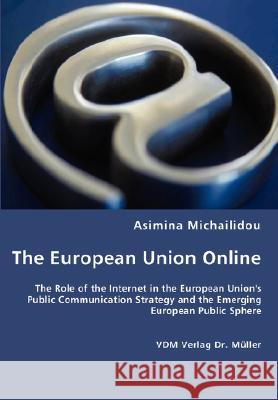The European Union Online » książka
The European Union Online
ISBN-13: 9783836462280 / Angielski / Miękka / 2008 / 232 str.
The issues of European Union (EU) citizenship, democratic legitimacy, social dialogue and trans-European communication of socio-economic actors have been ever present in the academic and political debates regarding the role of the EU institutions and the future of the Union. These issues have also defined the conceptual frame of the EUs information and communication strategy and feature at the core of the debates on the EU Constitutional Treaty (2002-2005) and the Reform Treaty (2007). This book is an innovative and timely interdisciplinary piece of research within the European political communication field: It assesses the potential democratising impact of the Internet on European Union (EU) institutions and its contribution to the emerging European public sphere, focusing on the top-down process of direct online communication initiated at the supranational level by the European Commission to address the general public. The findings highlight significant disparities between the Commissions public communication strategy, its online implementation and the institutions operating culture.











